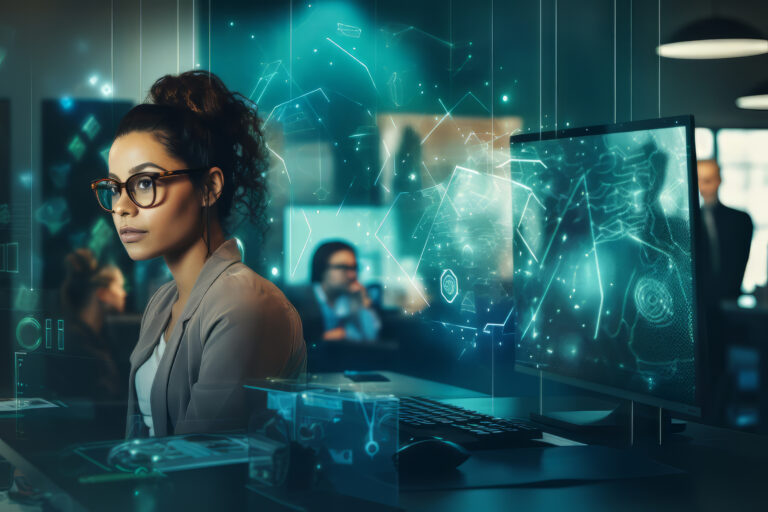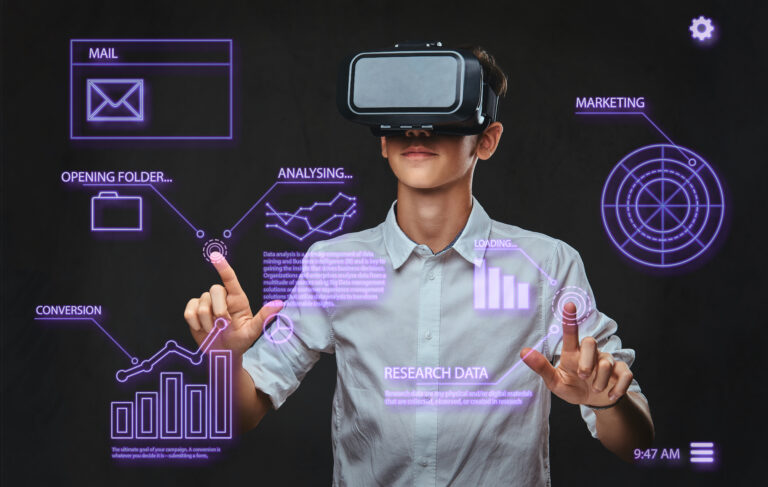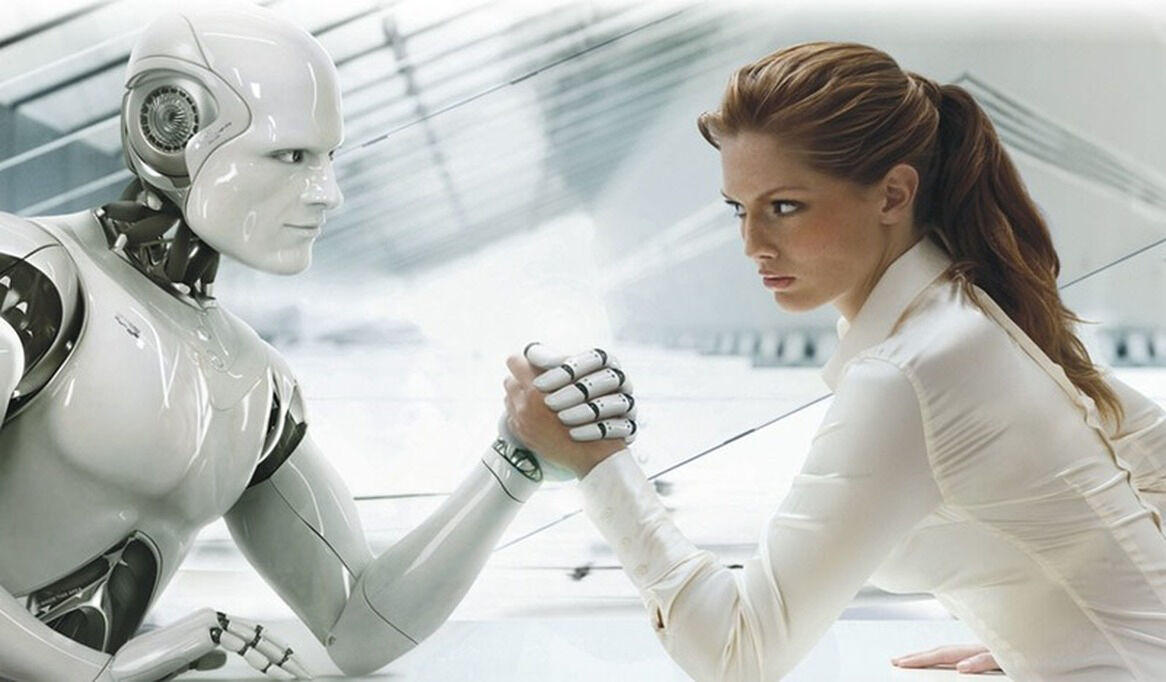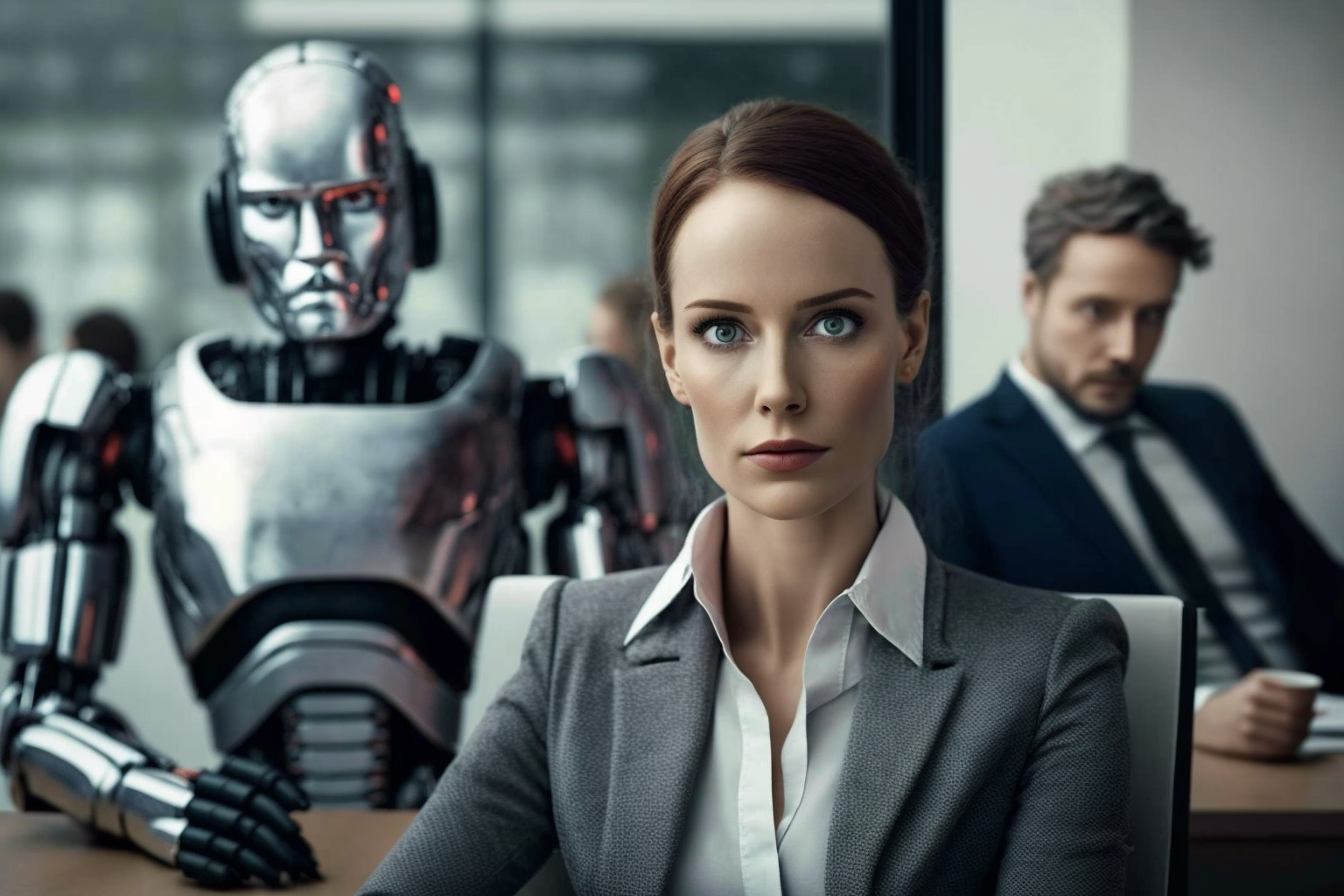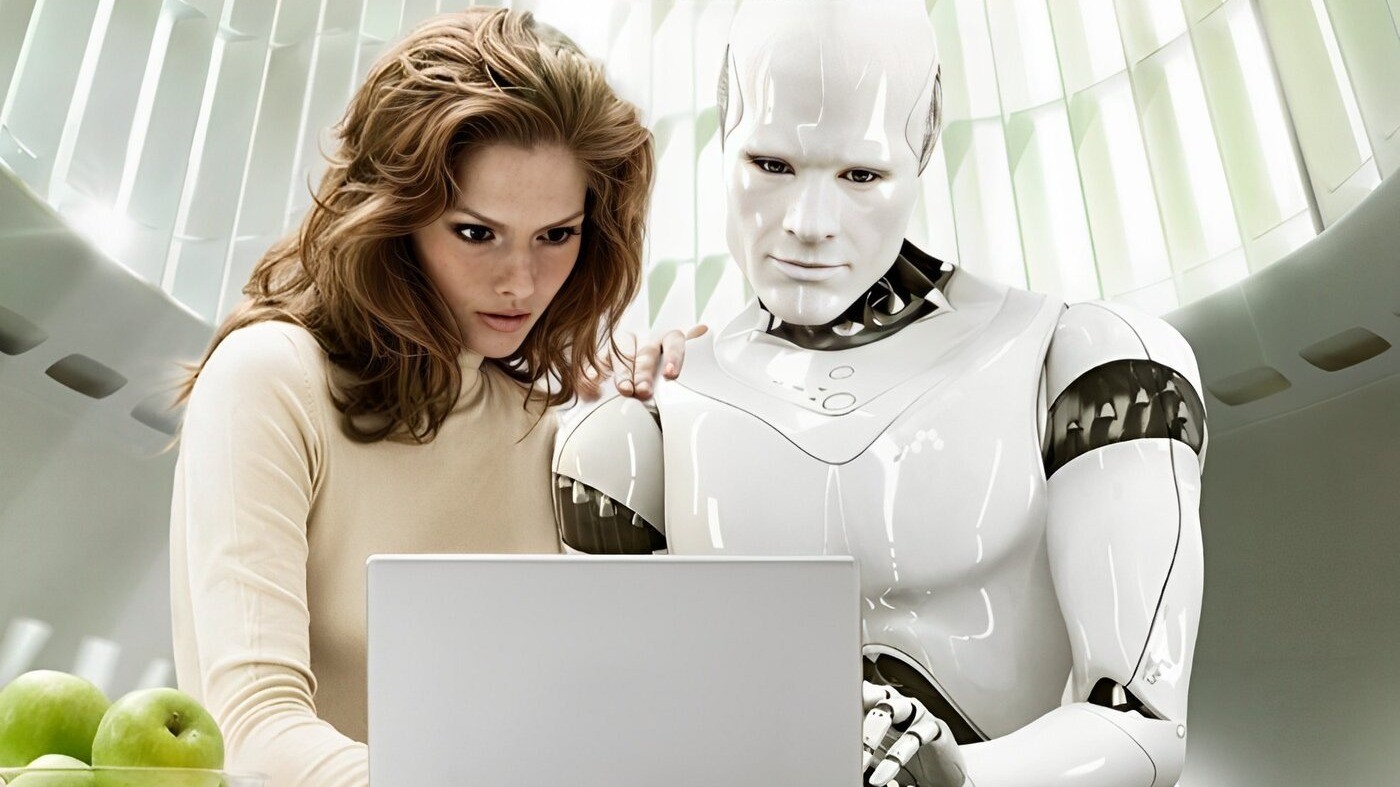Artificial Intelligence (AI) is at the center of a technological revolution that is redefining the way we live, work, and interact. From automating simple tasks to performing complex medical diagnoses, AI is transforming virtually every aspect of society. In this article, we’ll explore how AI is shaping the future and what this transformation means for our daily lives.
What is Artificial Intelligence?
Before we dive into the applications and impacts, it’s important to understand what Artificial Intelligence is . AI refers to systems and technologies that can perform tasks that normally require human intelligence , such as speech recognition , computer vision , natural language processing , and decision-making . AI can learn and improve over time, becoming more efficient and effective at its functions.
The Revolution in the Healthcare Sector
One area where AI is making a significant impact is in healthcare. AI is being used to diagnose diseases , personalize treatments , and even perform surgeries . Machine learning algorithms can analyze large volumes of medical data to identify patterns that doctors might otherwise miss. For example, AI can detect breast cancer in its early stages with greater accuracy than traditional methods, increasing the chances of successful treatment.
Additionally, telemedicine is leveraging AI to provide remote care . AI-powered virtual assistants can answer patient questions, monitor symptoms, and provide guidance, reducing the need for in-person visits and easing the burden on healthcare professionals.
Transformation in the Labor Market
AI is also transforming the job market in profound ways. The automation of repetitive and mundane tasks is freeing up workers to focus on more creative and strategic activities . However, this transformation also raises concerns about job replacement . Tasks that were previously performed by humans, such as data processing , customer service , and manufacturing , are being automated, which could lead to worker displacement.
On the other hand, AI is creating new job opportunities in areas such as algorithm development , data analysis , and AI ethics . Professionals with skills in information technology and data science are in high demand, and the need for continued education and reskilling is more crucial than ever.
Advances in Education
Education is another sector that is being revolutionized by AI . Adaptive learning technologies are personalizing the learning experience for each student, tailoring content to their needs and learning pace. AI-powered educational platforms can identify areas where students need more support and provide additional resources to help them understand the concepts.
Additionally, AI is facilitating distance learning and online learning . During the COVID-19 pandemic, many educational institutions have adopted remote learning platforms that use AI to monitor student participation , assess performance , and provide real-time feedback. These technologies are making education more accessible and flexible, allowing students to learn on their own terms.
Impact on Industry and Manufacturing
Industry and manufacturing are being transformed by AI on multiple levels. Intelligent robots are performing assembly, inspection, and packaging tasks with unparalleled accuracy and efficiency. AI systems can monitor production lines in real time, detecting and correcting issues before they become major failures .
Additionally, AI is being used to optimize supply chains , forecast demand, and manage inventory. Machine learning algorithms can analyze historical data and market variables to predict which products will be in high demand, helping companies better plan their operations and reduce costs.
Transformation in the Transport Sector
The transportation industry is undergoing a revolution with the introduction of autonomous vehicles. Self-driving cars and delivery drones are changing the way we travel and receive goods. These vehicles use a combination of sensors, cameras, and AI algorithms to navigate and make decisions in real time.
Additionally, AI is being used to optimize transportation routes , reduce congestion , and improve logistics efficiency . Public transportation companies are using AI to predict passenger demand and adjust bus schedules and routes in real time, providing a more efficient and reliable service.
Challenges and Ethical Considerations
While the benefits of AI are numerous, there are also important challenges and ethical considerations that need to be addressed. Data privacy is a significant concern, as AI systems often rely on large amounts of personal data. It is essential to ensure that this data is collected , stored , and used in a secure and ethical manner.
Additionally, the issue of algorithmic bias is a growing concern. AI algorithms can perpetuate existing biases if they are trained on biased data. This can lead to discrimination and inequality in areas such as hiring , lending , and criminal justice . Developers and companies should adopt ethical development practices and ensure transparency and accountability in their AI systems.
The Future of Artificial Intelligence
As we move into the future, AI will continue to evolve and become more integrated into our lives. Emerging technologies such as explainable AI and generalist AI promise to make AI more understandable and versatile. Explainable AI aims to create systems that can explain their decisions in a clear and understandable way, while generalist AI seeks to develop intelligence that can perform a wide range of tasks in a manner similar to the human brain .
Furthermore, collaboration between humans and AI will be key to maximizing the benefits of this technology. Rather than replacing humans, AI can be used as a powerful tool to amplify our abilities and help solve some of humanity’s greatest challenges, such as climate change , disease , and poverty .
Conclusion
The AI revolution is well underway, transforming virtually every aspect of our lives. From healthcare and education to industry and transportation , AI is redefining the future in ways that were previously unimaginable. However, with these advancements come responsibilities and challenges that we must address ethically and transparently. By adopting responsible practices and fostering collaboration between humans and AI, we can ensure that this technological revolution benefits all of society and creates a brighter , more sustainable future .


